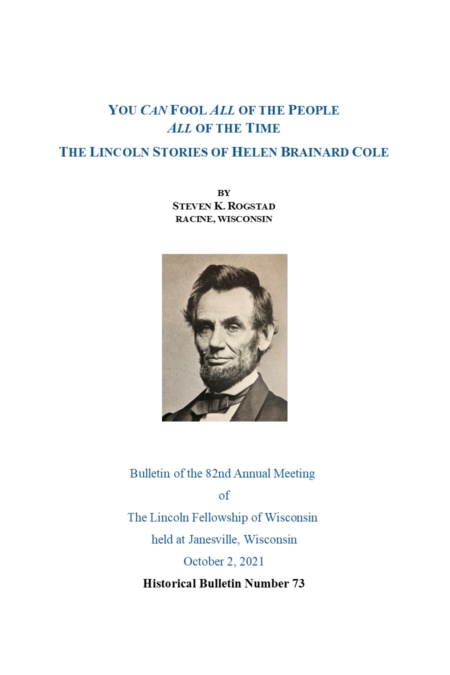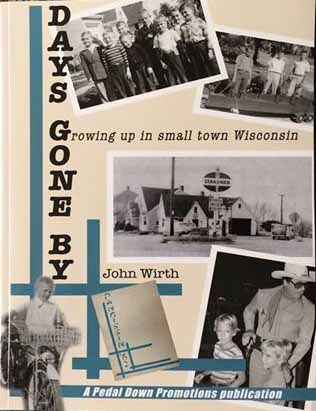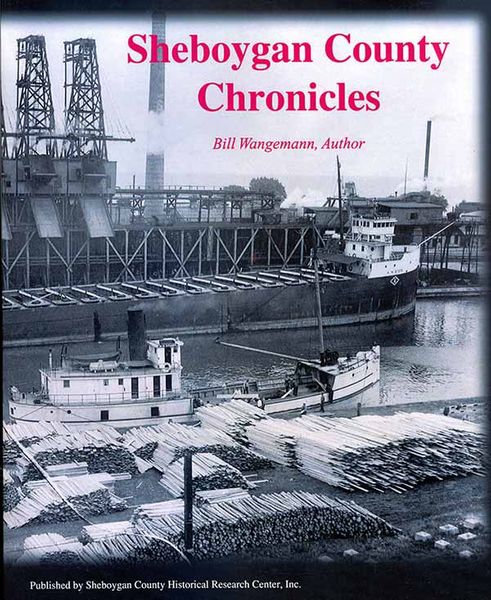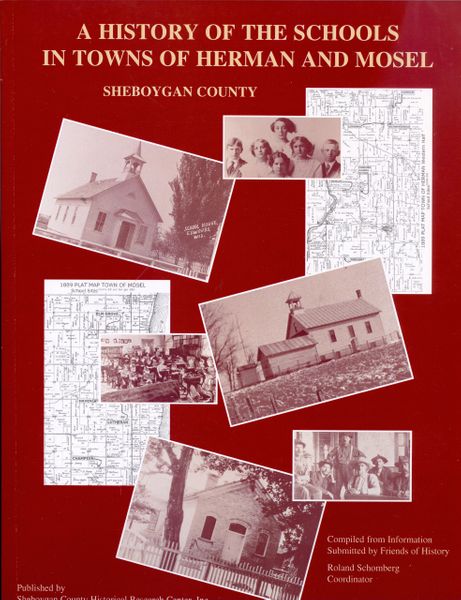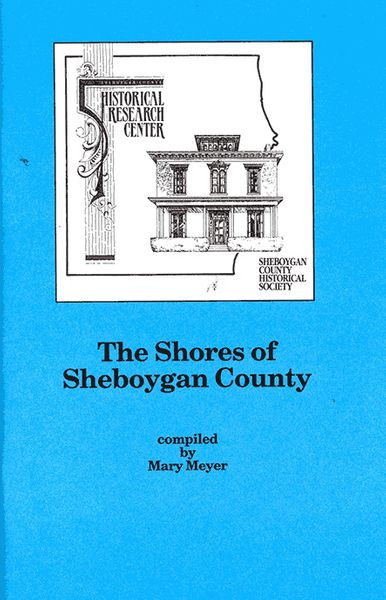Description
By Steven K. Rogstad
Historical Bulletin Number 73, Lincoln Fellowship of Wisconsin
Racine, Wisconsin
2022
This address was delivered at the 82nd Annual Meeting of the Lincoln Fellowship of Wisconsin held at the Lincoln-Tallman Home in Janesville, Wisconsin, October 2, 2021.
A quotation often attributed to Abraham Lincoln is that “You can fool some of the people all of the time, and all of the people some of the time, but you can’t fool all of the people all of the time.” The statement, although apocryphal, can be applied to the story of Wisconsin native Helen Brainard Cole, but with one slight alteration. In her case, she certainly fooled all of the people all of the time when she reminisced about her interactions with Abraham Lincoln and his family in the White House when she served as a nurse at a nearby military hospital.
When she died at age 93 in 1931, she was fondly remembered as “one of Sheboygan’s oldest and grandest women and Wisconsin’s last Civil War nurse,” who had received numerous accolades for her patriotism, devotion to military societies, attendance at state military encampments of the Grand Army of the Republic, participation in nursing organizations and area service clubs, and the years of service she ministered as a nurse during the Civil War to the “boys in blue” at the nation’s capital. Her death was prominent news in the Sheboygan Press on the morning of September 4, 1931, which recounted for its readers Cole’s lengthy nursing career and the benevolent care she devotedly offered to others – including ministering to Lincoln’s youngest son during an extended illness in the White House – that characterized her long life.
The purpose of this lecture is to briefly examine the reminiscences that Helen Brainard Cole told about Abraham Lincoln. More than anything else that she had accomplished in her life, it would be her stories about the Sixteenth President that elevated her to notoriety. They are worth studying because like so many reminiscences and recollections that were published in the first six decades after Lincoln’s death, Cole recollections have been accepted at face value without being critiqued within the context of historical method and investigation.

